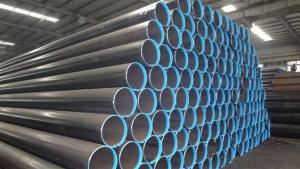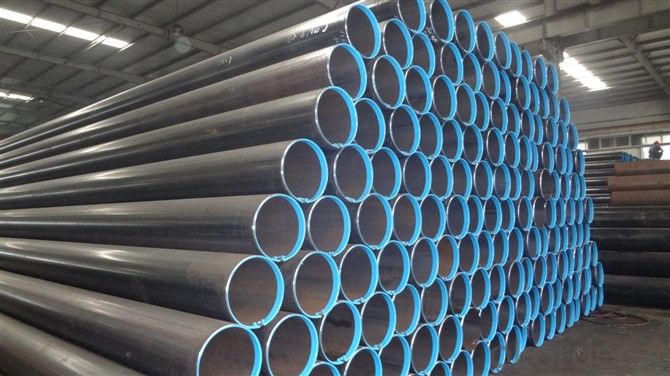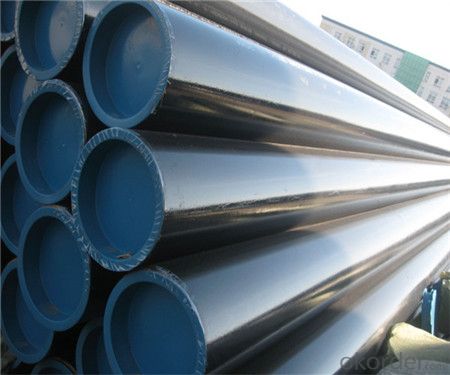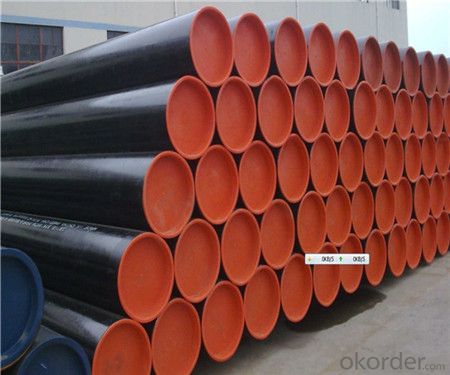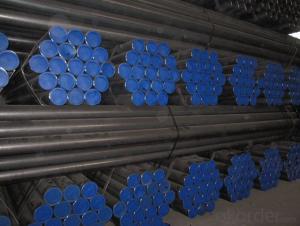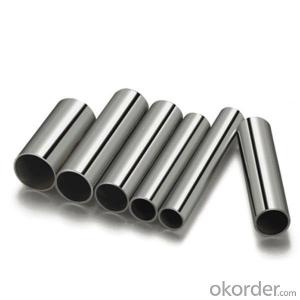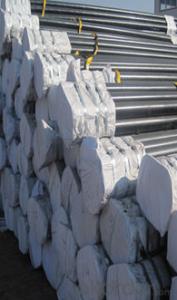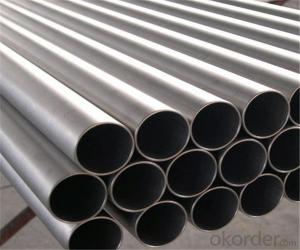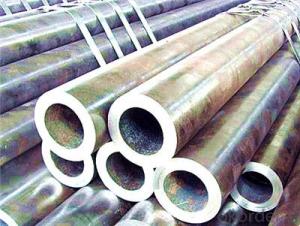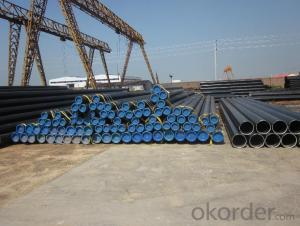LSAW Steel Pipe with High Quality from CNBM
- Loading Port:
- China Main Port
- Payment Terms:
- TT or LC
- Min Order Qty:
- -
- Supply Capability:
- -
OKorder Service Pledge
OKorder Financial Service
You Might Also Like
1、Structure of High Quality LSAW Steel Pipe:
Seamless pipe is formed by drawing a solid billet over a piercing rod to create the hollow shell. As the manufacturing process does not include any welding, seamless pipes are perceived to be stronger and more reliable. Historically seamless pipe was regarded as withstanding pressure better than other types, and was often more easily available than welded pipe.
2、Main Features of High Quality LSAW Steel Pipe:
• High manufacturing accuracy
• High strength
• Small inertia resistance
• Strong heat dissipation ability
• Good visual effect
• Reasonable price
3、High Quality LSAW Steel Pipe Specification:
Standard | GB, DIN, ASTM ASTM A106-2006, ASTM A53-2007 |
Grade | 10#-45#, 16Mn 10#, 20#, 45#, 16Mn |
Thickness | 8 - 33 mm |
Section Shape | Round |
Outer Diameter | 133 - 219 mm |
Place of Origin | Shandong, China (Mainland) |
Secondary Or Not | Non-secondary |
Application | Hydraulic Pipe |
Technique | Cold Drawn |
Certification | API |
Surface Treatment | factory state or painted black |
Special Pipe | API Pipe |
Alloy Or Not | Non-alloy |
Length | 5-12M |
Outer Diameter | 21.3-610mm |
Grade | 20#, 45#, Q345, API J55, API K55, API L80, API N80, API P110, A53B |
Standard | ASME, ASTM |
1) Material:20#(ASTM A 106/A53 GRB.API5LGRB,GB),45#,16Mn,10#.
2) Specification range:OD:21.3-610mm,WT:6-70mm,length:6-12m or according to the requirement of clients.
3) Excutive standards:GB,ASME API5L.ASTM A 106/A53,Despite of the above standards,we can also supply seamless steel pipe with standard of DIN,JIS,and so on,and also develop new products according to the requirements of our clients!
4) Surface:black lacquered,varnish coating or galvanized.
5) Ends:Beveled or square cut,plastic capped,painted.
6) Packing:bundles wrapped with strong steel strip,seaworthy packing.
4、Packaging & Delivery
Packaging Details: | seaworthy package,bundles wrapped with strong steel strip |
Delivery Detail: | 15-30days after received 30%TT |
5、FAQ of High Quality LSAW Steel Pipe:
①How is the quality of your products?
Our products are manufactured strictly according to national and internaional standard, and we take a test
on every pipe before delivered out. If you want see our quality certifications and all kinds of testing report, please just ask us for it.
Guaranteed: If products’ quality don’t accord to discription as we give or the promise before you place order, we promise 100% refund.
②How about price?
Yes, we are factory and be able to give you lowest price below market one, and we have a policy that “ for saving time and absolutely honest business attitude, we quote as lowest as possible for any customer, and discount can be given according to quantity”,if you like bargain and factory price is not low enough as you think, just don’t waste your time.Please trust the quotation we would give you, it is professional one.
③Why should you chose us?
Chose happens because of quality, then price, We can give you both.Additionally, we can also offer professional products inquiry, products knowledge train(for agents), smooth goods delivery, exellent customer solution proposals.Our service formula: good quality+good price+good service=customer’s trust
SGS test is available, customer inspection before shipping is welcome, third party inspection is no problem.
6.Images
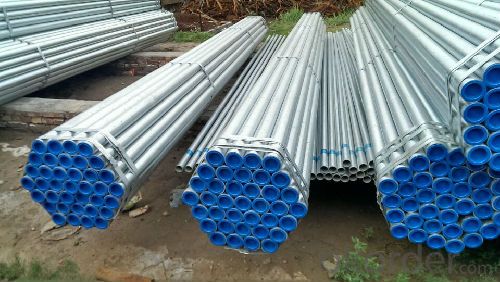
- Q: What is the outer diameter and wall thickness of the welded steel pipe of national standard DN250?
- DN (nominal diameter) 250 is generally the industry said 273, welded steel pipe (spiral steel pipe) thickness is generally between 6-8mm, more common.
- Q: Can steel pipes be used for chemical refineries?
- Chemical refineries can utilize steel pipes for their operations. Steel pipes are frequently employed in chemical refineries because of their exceptional strength, long-lasting nature, and resistance to corrosion. Given the harsh conditions present in a chemical refinery, including exposure to corrosive chemicals and extreme temperatures, it is necessary to employ materials that can endure such circumstances. Steel pipes possess the capability to withstand these challenges and are often preferred for their ability to securely and efficiently transport diverse fluids and gases. Furthermore, the weldability of steel pipes permits easy installation and maintenance within intricate refinery systems. All in all, steel pipes are a fitting choice for chemical refineries due to their durability, ability to resist corrosion, and compatibility with the demanding conditions encountered in this industry.
- Q: Can steel pipes be used for swimming pool installations?
- Indeed, swimming pool installations can make use of steel pipes. Renowned for their robustness and power, steel pipes emerge as an apt alternative for both subterranean and aboveground swimming pool plumbing systems. These pipes possess the capacity to endure elevated water pressure and resist the deteriorating impact of pool chemicals. Moreover, steel pipes exhibit resilience against harsh weather conditions and can be effortlessly installed and maintained. Nevertheless, it remains crucial to guarantee appropriate treatment and coating of the steel pipes to avert rust and corrosion.
- Q: How do you determine the weight per foot of a steel pipe?
- To determine the weight per foot of a steel pipe, you need to consider two main factors: the thickness and the diameter of the pipe. First, you need to measure the outer diameter (OD) and the wall thickness (WT) of the pipe using a caliper or a measuring tape. Once you have these measurements, you can calculate the inner diameter (ID) by subtracting twice the wall thickness from the outer diameter (ID = OD - 2 * WT). Next, use the formula for the cross-sectional area of a pipe (A = π * (OD^2 - ID^2) / 4) to calculate the cross-sectional area. Finally, multiply the cross-sectional area by the density of the steel, which is typically around 490 pounds per cubic foot, to determine the weight per foot of the steel pipe. Weight per foot (WPF) = A * 490 It's important to note that this calculation provides an estimate of the weight per foot, as manufacturing tolerances and slight variations in the density of the steel may affect the actual weight. Therefore, it is recommended to use this calculation as a guide and consult the manufacturer's specifications for more precise information.
- Q: What is the maximum allowable deflection for steel pipes?
- The maximum allowable deflection for steel pipes is typically determined by industry standards and design codes. These standards and codes specify the acceptable limits of deflection to ensure the structural integrity and functionality of the pipes. The maximum allowable deflection varies depending on various factors such as the pipe diameter, wall thickness, material properties, and the type of application. It is important to consult the relevant standards and codes, such as the American Society of Mechanical Engineers (ASME) B31.3 code for process piping or the American Water Works Association (AWWA) standards for water transmission and distribution pipes, to determine the specific maximum allowable deflection for a particular steel pipe application. Following these guidelines helps to ensure the safe and efficient operation of steel pipes in various industries and applications.
- Q: Are steel pipes suitable for use in automotive industries?
- Yes, steel pipes are suitable for use in automotive industries. Steel pipes are highly durable, have excellent strength-to-weight ratio, and can withstand high pressure and temperature conditions, making them ideal for various automotive applications. They are commonly used in exhaust systems, brake lines, fuel lines, and structural components of vehicles due to their reliability and ability to withstand harsh environments.
- Q: How are steel pipes used in the construction of irrigation systems?
- Steel pipes are commonly used in the construction of irrigation systems due to their strength and durability. These pipes are used to transport water from a water source, such as a well or reservoir, to the desired areas for irrigation. They are often used in underground or above-ground applications, providing a reliable and efficient means of delivering water to crops or plants. Steel pipes are resistant to corrosion and can withstand high pressure, making them ideal for irrigation systems that require long-term functionality.
- Q: Can steel pipes be used for underground transportation tunnels?
- Yes, steel pipes can be used for underground transportation tunnels. Steel pipes are often used in the construction of underground tunnels due to their durability, strength, and resistance to corrosion. They can efficiently withstand the pressure and weight of the surrounding soil and provide a reliable transportation infrastructure.
- Q: Can steel pipes be used for conveying slurry and slurries?
- Yes, steel pipes can be used for conveying slurry and slurries. Steel pipes are commonly used for various applications including transporting fluids, gases, and solids. They are known for their durability, strength, and resistance to corrosion, making them suitable for handling abrasive materials like slurry and slurries. Steel pipes are often lined with materials such as rubber or ceramic to provide additional protection against wear and tear caused by the abrasive nature of slurries. The choice of steel grade and lining material depends on the specific requirements of the slurry being conveyed, such as its particle size, concentration, and temperature. Overall, steel pipes are a reliable and efficient option for transporting slurries in various industries including mining, wastewater treatment, and chemical processing.
- Q: What are the disadvantages of using steel pipes?
- One major disadvantage of using steel pipes is their susceptibility to corrosion. Over time, exposure to moisture and certain chemicals can cause the pipes to rust and weaken, leading to leaks or structural damage. Additionally, steel pipes are generally heavier and more expensive than alternative materials, making them less suitable for certain applications where weight and cost are crucial factors.
Send your message to us
LSAW Steel Pipe with High Quality from CNBM
- Loading Port:
- China Main Port
- Payment Terms:
- TT or LC
- Min Order Qty:
- -
- Supply Capability:
- -
OKorder Service Pledge
OKorder Financial Service
Similar products
Hot products
Hot Searches
Related keywords
